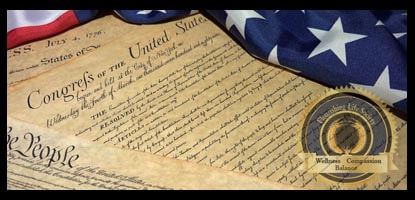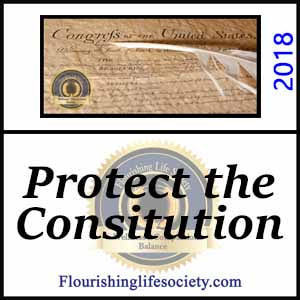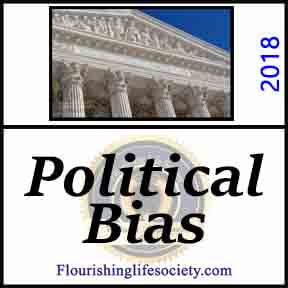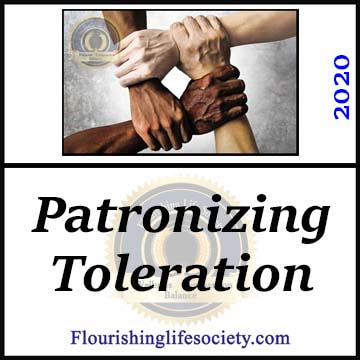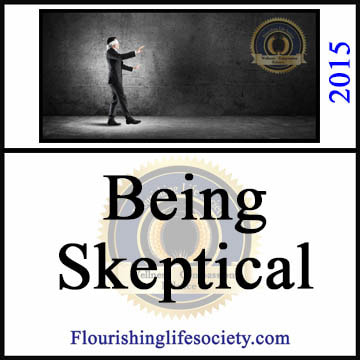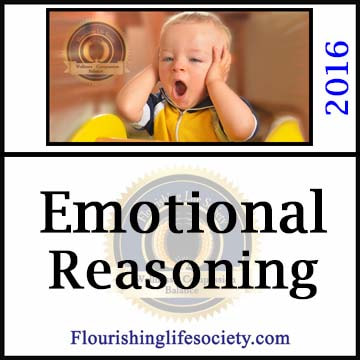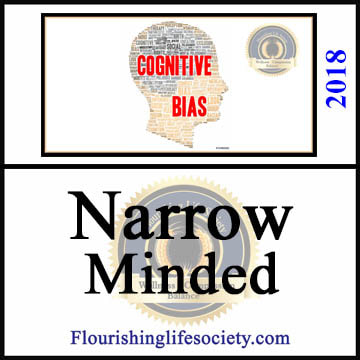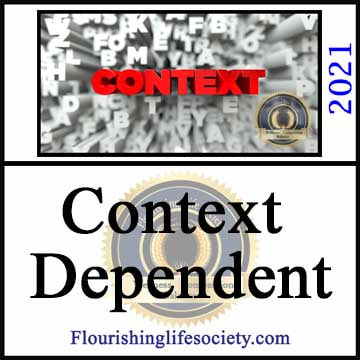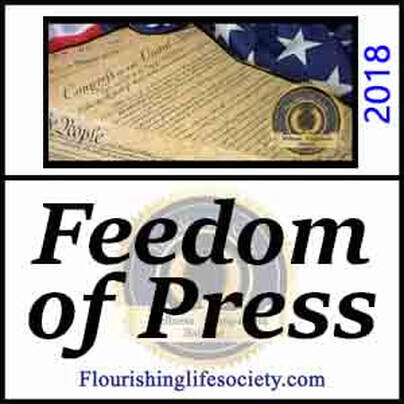BY: T. Franklin Murphy | August 2018
In the news this week is suggestions of governmental intervention into Google news searches. Such remarks are eerily familiar from disastrous demagogue leaders of brutal regimes.
|
The government monitoring Google searches, yea that sounds like a brilliant idea. Perhaps, we could create a governmental department, appointed by the president, who monitors news content, blocks access to unfavorable websites, and stirs all web searches to a carefully monitored search. Maybe, this department could also host weekly book burnings. Whether we prefer a conservative or liberal press, threats of governmental intrusion should alarm any conscientious believer in democracy. Handing over the reins of media coverage to the control of a partisan committee frightens the bejeebers out of me. Any senator, congressman, or judge that joins or refuses to publicly oppose the ridiculousness of implanting governmental control of media, should be shamed out of office.
We are indoctrinated by culture. Our history classes, or news feeds, and our associates impacts the way we process information. We have a brain that filters information through accepted concepts. Media matters; whether you are glued to Fox and Friends or CNN, the information flow will largely determine your political concepts used to evaluate the state of America, the success or failure of a presidency, and the guilt or innocence of criminal involvement. Segregation of PowerSegregation of function is a powerful defense against corruption. Our forefathers understood this. The United States Constitution derives its strength from segregations. The legislative, executive, and judicial branches of government serve as a checks and balance on power. But the greatest balance and check on power is an involved public. We cannot stand idly by and allow the brilliantly written Constitution be disregarded when it fails to serve a sitting administration’s purposes. Such power would be abused, by any party sitting in office. For me, the very suggestion implies that the high-minded elected officials believe we are too stupid to evaluate a source, skeptically examine alternatives, and make an educated decision.
When the founders agreed upon the first amendment to the Constitution, part of the Bill of Rights, they knew first hand of the power of press to persuade, confuse, or brainwash the public. The Bill of Rights were adopted to protect civil rights. "We cannot stand idly by and allow the brilliantly written Constitution be disregarded when it fails to serve a sitting administration’s purposes. Such power would be abused, by any party sitting in office."
The First Amendment: “…The people shall not be deprived or abridged of their right to speak, to write, or to publish their sentiments; and the freedom of the press, as one of the great bulwarks of liberty, shall be inviolable….”
Supreme Court Justice Brandeis wrote this impassioned defense of freedom of expression: Those who won our independence believed that the final end of the State was to make men free to develop their faculties; and that in its government the deliberative forces should prevail over the arbitrary. They valued liberty both as end and as a means. They believed liberty to be the secret of happiness and courage to be the secret of liberty. They believed that freedom to think as you will and to speak as you think are means indispensable to the discovery and spread of political truth; that without free speech and assembly discussion would be futile; that with them, discussion affords ordinarily adequate protection against the dissemination of noxious doctrine; that the greatest menace to freedom is an inert people; that public discussion is a political duty; and that this should be the fundamental principle of American government. (Whitney v. California, 1927 (Brandeis, J., concurring)) Dangers of a Government Controlled PressOrson Wells’ warns of the dangers of a government-controlled press in his classic novel 1984. The main character, Winston Smith, although belonging to the ruling party, lived under the heavy oppression of an obtrusive government with limited rights.
When we open the discussion for significant government meddling of free press, we invite despotic governments to indoctrinate the public. All authoritarian leaders attack the press, limit information, and then act in secrecy to achieve their personal agenda. History is rife with examples; dictatorial limits to freedom, ending with widespread atrocities—even genocide. We don’t need thought police determining which articles will be in my Google news box. We do not want a United States Ministry of Truth confusing the issues, convincing us that truth is not truth; war is peace, freedom is slavery, and ignorance is strength. The press is one of the greatest bulwarks of liberty, keeping leaders in a democratic society in check. The press ruthlessly scrutinizes all the prominent men in power. The press was the motivating force behind the uncovering of the crimes of the Nixon administration, which consequently was routinely called a “which hunt” by the prominent party at the time. "We do not want a United States Ministry of Truth confusing the issues, convincing us that truth is not truth; war is peace, freedom is slavery, and ignorance is strength."
The People Must Protect Their freedomsWe, as a people in a democratic society, can’t sit idle and allow anything or anyone to control our diet of knowledge. If we solely rely on a single source for our education, we will be susceptible to that sources biases. We must be diligent in searching, learning, and skeptically examining evidence. The freedom of speech is the market place of ideas championed by the founders, supported and elaborated upon by Justice Brandeis and Justice Holmes. The controls for the evil designs of leaders is more speech, not governmental control or suppression. If we allow government to encroach on this civil right, we sacrifice the fundamental strength of our democracy, oversight by the people, giving way for gross abuses of power.
Whichever party we support, we must demand as part of the platform a checks and balances of power, holding the ideals of the constitution as our governing document, giving priority to civil liberties over our individual expectations from a governing power. Truth emerges from open debate and opposing views, pulling radical thought into the burning light of reason, and protecting the masses from being blindly led down damnable paths of hate, war and loss of freedom. References: |
|
